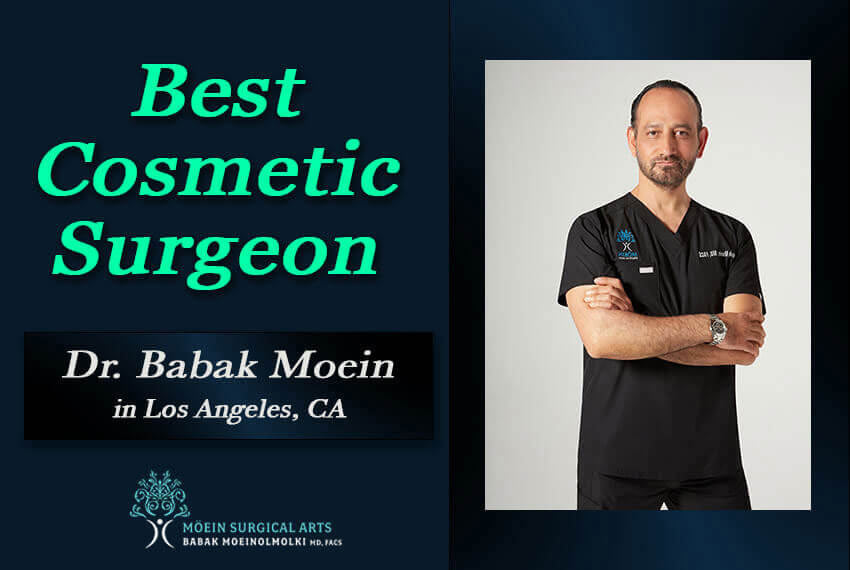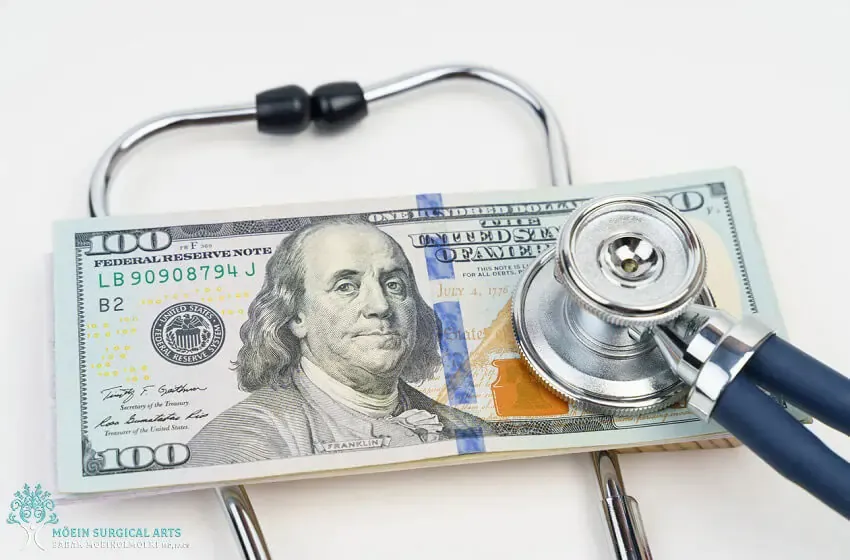
Are you considering the best plastic surgeon in Los Angeles, CA? With so many cosmetic treatments available, sorting through all the doctors can be overwhelming. When it comes to selecting a plastic surgeon, it’s important to take your time and do your research.
The plastic/cosmetic surgery industry is booming. In 2020, the last year statistics were measured, Americans spent nearly $16.7 billion on cosmetic procedures, according to the American Society of Plastic Surgeons. Nearly half of those procedures were performed on the largest demographic, which is men and women 35 to 50 years of age.
The COVID-19 pandemic was a major driver of people seeking cosmetic surgery. People saw themselves reflected back in Zoom and Skype windows and suddenly realized they had a double chin, a big nose, or jowls. Cosmetic surgery can fix all of those defects and more.
If you have ever wanted to trade a body part in for a new one, now is your chance. Plastic or cosmetic surgery can make it happen. In this article, we are going to cover the difference between plastic and cosmetic surgery, as well as how to find the best plastic surgeon or cosmetic surgeon to match your goals.
Mainstream media and popular culture are accustomed to mentioning plastic surgery and cosmetic surgery in the same breath. But these disciplines are quite different. Celebrities that have plastic surgery are usually undergoing cosmetic surgery instead. Calling their procedures plastic surgery is a misnomer. Here are the facts.
Plastic surgeons perform both cosmetic and reconstructive procedures. While they can perform nose jobs (rhinoplasty), breast augmentation, and facelifts, they are more known for their reconstructive work. People go to plastic surgeons to repair congenital deformities like cleft lips, accident injuries such as burned skin, and cancer reconstructions such as rebuilding the breasts following a mastectomy.

Cosmetic Surgery in Los Angeles CA
Cosmetic surgery (otherwise known as aesthetic surgery) is what most people consider when they hear or read the term plastic surgery. These procedures are performed by a board-certified cosmetic surgeon to improve a person’s appearance and self-esteem. Cosmetic surgeries are elective procedures, which means that insurance does not always cover them. Patients are usually healthy before undergoing one of these life-saving techniques.
When it comes to cosmetic surgery, there are both surgical and non-surgical techniques you can use to completely revamp your look. Think of Cinderella being turned into a Princess by the Fairy Godmother. The difference is that you won’t find yourself reverting back to the old you at the stroke of midnight.
The most common cosmetic procedures are liposuction, breast augmentation, as well as face and head procedures such as the facelift, eyelid surgery, brow lift, facial fillers, chin implants, cheek implants, and lip augmentation.
For the body, there is also the tummy tuck, Mommy Makeover (breast augmentation, liposuction, tummy tuck, and Brazilian butt lift), arm lift, body lift, thigh lift, and buttock implants.
For the breasts, there is breast augmentation with breast implants, natural augmentation with fat grafting, breast lift, breast reduction, and gynecomastia surgery (male breast reduction).
Read our article: The Psychological Benefits of Breast Enhancement
Facial cosmetic surgeries include neck lift, eyelid surgery, Kybella double chin treatment, brow lift, rhinoplasty (nose job), and facial implants.
Non-surgical techniques include cellulite treatments, laser skin tightening, nonsurgical body contouring, skin rejuvenation, dermal fillers, scar treatments, neurotoxin injections, laser hair removal, and treatment for spider and varicose veins.
Plastic surgery is right for you if you would like to restore form or function to a particular part of yourself. A burn accident, cancer, congenital defect, or even carpal tunnel syndrome can all be improved by finding the right plastic surgeon.
Both plastic surgeons and cosmetic surgeons can help if you have a part of yourself that bothers you and you want to improve your appearance only. The book Cosmetic Surgery for Dummies by R. Merrel Olesen and Marie B.V. Olesen says it best. “If you’re limiting your life because of physical issues that can be changed, then you may well want to live your life to the fullest by either considering cosmetic surgery or accepting who you are now and getting on with your life. Cosmetic surgery isn’t a substitute for healthy living, wise food choices, or sound emotional decisions. But if something about your body gets in the way of your enjoyment of daily life – maybe you hide from the camera, avoid wearing shorts or sleeveless tops, or steer clear of social situations – acknowledging and thinking about the problem should be another step of your decision-making process.”
If you do have a part of your body that bothers you, opting for cosmetic surgery allows you to change that part as you would switch out a damaged part on your car. Imagine you’ve had a fender bender and now your rear bumper is crumpled. Everywhere you drive, people judge you for having a damaged car. By replacing your bumper, you no longer face judgment. You can drive around town with pride knowing that your vehicle once more looks supreme. That’s what cosmetic surgery can do for your face and body.
If you tend to avoid your mirror like a bill collector, it may be time to do something about it.
But how do you find the right professional?

There are several avenues you can pursue to find the best plastic surgeon or cosmetic surgeon, depending on your goals.
Once you have found a professional, the next step is to schedule a consultation. This face-to-face meeting is discreet and critically important. Similar to a job interview, this is your chance to assess the professional’s qualifications, education, experience, and the level of rapport you feel. You will also get a chance to learn more about and determine if you are a suitable candidate for the procedure you have in mind.
Never show up to a plastic surgery or cosmetic surgery consultation empty-handed. What should you bring? Notes, for one. Write down your aesthetic goals and any important questions you want to be answered. The reason is that you may draw a blank once you find yourself put on the spot during the initial meeting. Having notes gives you backup so that everything is covered. You also know that you and the surgeon are on the same page by the time the consultation ends.
The consultation may include a physical assessment to determine if you are healthy enough for plastic or cosmetic surgery. You may find out about procedures you didn’t know existed. For instance, there may be a non-surgical option for the cosmetic surgery you had in mind, such as the non-surgical facelift as opposed to the traditional surgical facelift.
You will also learn about fees, insurance, and medical financing, which are important discussions to have if you can’t afford plastic or cosmetic surgery directly out-of-pocket.
It is important to keep in mind that a consultation is not an obligation. It’s an interview, and you are free to choose that plastic or cosmetic surgeon or to take your business elsewhere. While you are engaged in the interview process, pay attention to the office. Is it clean and organized? Most importantly, listen to your gut. Do you feel comfortable in the surgeon’s presence? Are you put at ease by the information you are given? And are you confident, based on the surgeon’s credentials, before and after photography, and knowledge, that you are in the right, artistic hands?
What questions should you ask the plastic or cosmetic surgeon during the initial consultation? Here are some ideas:

As we have mentioned, the question of fees will come up at some point during the initial consultation. The surgeon will give you a quote for the procedure you want. To give you an idea of how much you may be required to spend, here is the average cost of many popular cosmetic procedures.
Keep in mind that these are only general fees that may not include additional costs such as anesthesia, medications, surgeon’s fees, facility fees, and after-care.
If you are interested in plastic surgery, insurance may cover some or a portion of the tab. Cosmetic surgery is less likely to be covered under many health insurance policies. There are exceptions, however. As we age, our eyelids can droop, which can negatively affect our peripheral vision. Some insurance companies will cover the cost of eyelid surgery if your doctor can prove the surgery is medically necessary. Ask the surgeon about insurance during the consultation and double-check with your health insurer to see if they cover the surgery you want.
If health insurance does not cover the costs, you always have the choice of turning to medical financing. Companies like Care Credit and Prosper Healthcare Lending can give you a line of credit to draw from. That way, you can have surgery now and pay the fees back over time.
If cost is a deterrent, think about how much the part of your body truly bothers you. The costs may be worth it if you stand to gain self-esteem and a new outlook on life. As Warren Buffet once said, “The best investment you can make is in yourself.”
Read our article: The Non-Celebrity Guide to Affording Cosmetic Surgery
Find the best cosmetic surgeon, and you’ll have found a professional who can guide you along the road to a more attractive and confident you.
If you have one or more parts of your body that require form or function restoration, follow these tips to find a plastic surgeon in Los Angeles, California.